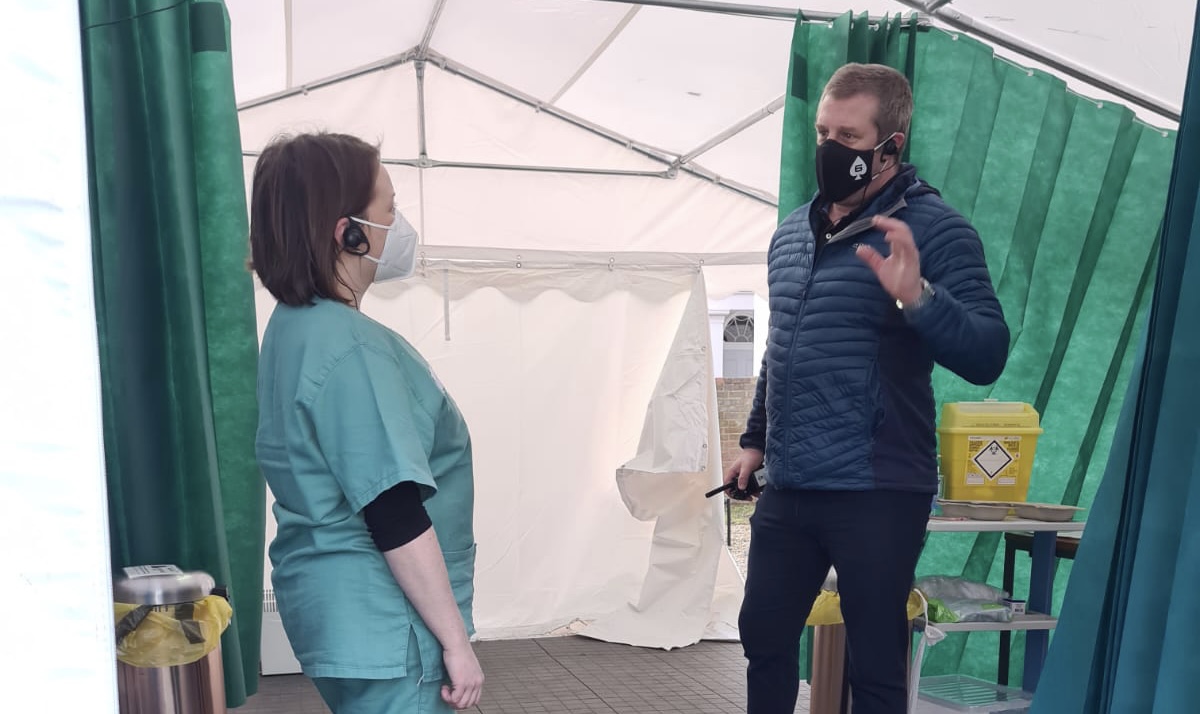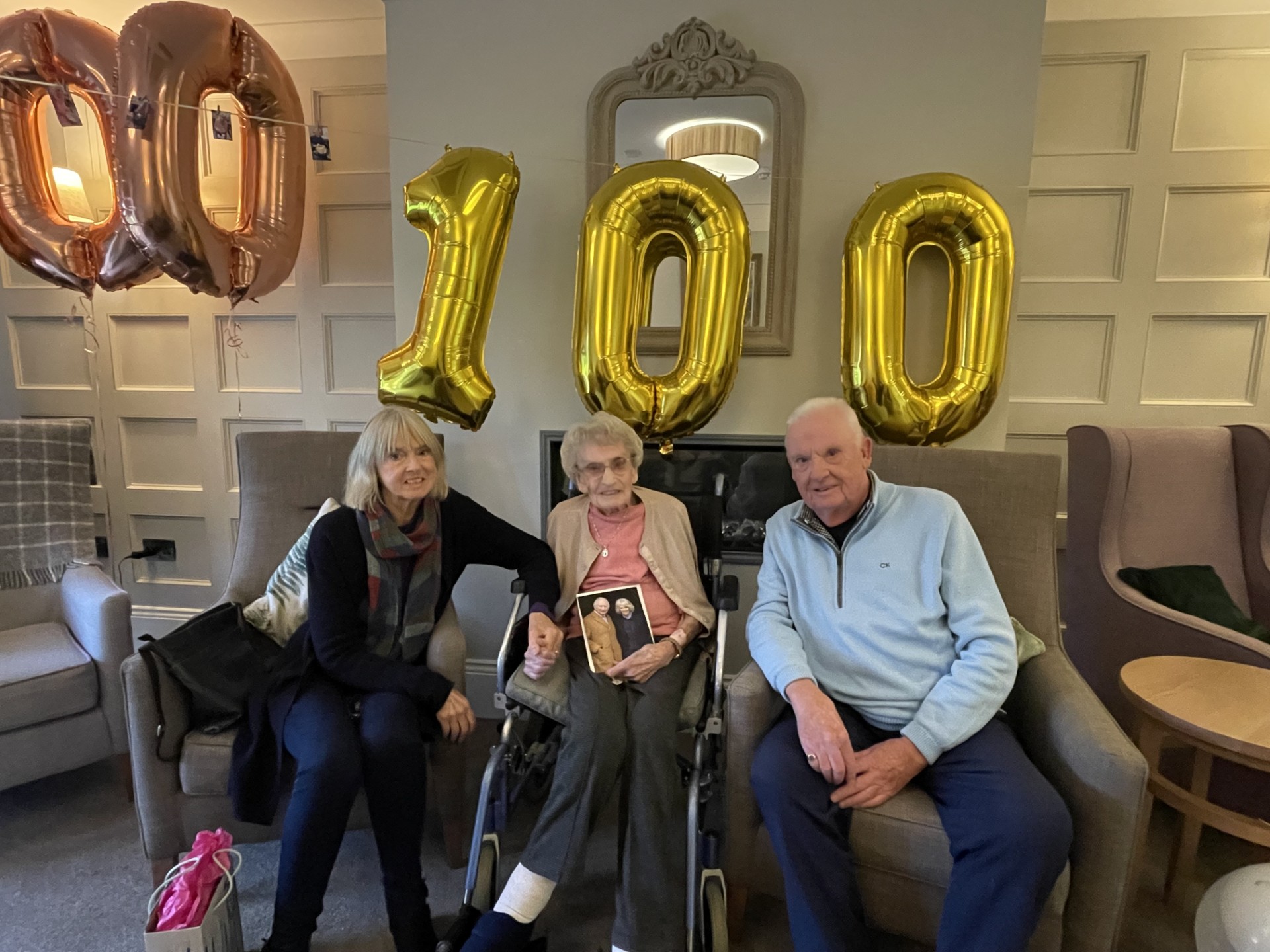Former military and security specialists tapped into their expertise to devise a new secure communications system for medics on the frontline of the NHS.
A team of security experts, led by a former Special Forces communication specialist, has worked with surgeons to devise a solution for medical staff cocooned in PPE.
The hands-free duplex radio system enables intensive care and surgical teams to communicate clearly through PPE. It has already been adopted at Salford Royal NHS Foundation Trust, part of the Northern Care Alliance Group.
Shaun Leavy, who served with the Special Forces in conflict zones around the world, set up the cyber security and communications business, Kinetic Six, after leaving the military in 2012. His team of communication and risk consultants have over 75 years of combined British military and hostile environment security service. They deliver critical radio communication solutions across the world in complex and life-threatening situations.
Giles Bond-Smith, a Consultant Surgeon at John Radcliffe Hospital in Oxford, asked for help as they were unable to speak or hear clearly under layers of PPE.
Giles Bond-Smith said: “In our busy emergency theatres it became very difficult to clearly hear different team members talking through respirators and FFP2 masks. Those members of staff that required a modicum of lip reading were lost. This was all occurring within the theatre, but there was also the added difficulty of how to communicate with the outside theatre teams.”
Giles added: “This led to the idea of using in-ear bone conduction ear-pieces that are connected to a radio. Every team member tuned into the same channel and hey presto you were live with the team. The ear pieces could be used with all types of PPE and face masks and whilst operating. The bone conduction technology meant that any team member could talk quietly and be heard with ease by all team members inside and outside of theatre.”
Gill Gower, Product Manager at Kinetic Six, said: “As specialists in this field, we routinely deliver secure communication infrastructures in complex and challenging environments. Through contact with one of my Security Risk colleagues, who works all over the world in conflict zones, Giles came to me with his problem and asked if Kinetic Six could help. I immediately understood his situation and we were able to identify a solution and tailor it in little more than 24 hours.”
A former Head of Operations at AKE International, Gill worked as a senior responder in complex mobilisation and extraction operations. Directing teams on numerous hostile environment deployments, including kidnap, piracy and rescue operations across the Middle East, Asia and Africa, she is well-versed in finding solutions and making critical decisions under stressful and demanding circumstances.
CEO of Kinetic Six, Shaun Leavy, has many years’ experience, not only as a Special Forces communicator within the military, but with an in-depth knowledge of the entire radio frequency spectrum. He and his team have brought communication infrastructures to where it is needed most across the globe. His own personal experiences of the NHS motivated him to help.
Shaun said: “My wife is a doctor and hearing her stories, I could see the NHS needed alternative solutions for communicating whilst wearing PPE. I could see the similarities between medical and security professionals. Part of my military training, involved working with frontline trauma medics, and A&E Department professionals, so I’ve seen first-hand how pressured life or death situations are, where every second counts. Being able to communicate clearly and quickly whilst wearing PPE is obviously vital, particularly in surgical and emergency settings. Protection of life is at the heart of the work we do, as it is for those in the NHS, so it was a no-brainer to re-deploy my team’s skills to help.”
After successful trials by Salford Royal neurosurgeons, the new secure communications system is hoped to be rolled out to other NHS Trusts.
Mr Omar Pathmanaban, Consultant Neurosurgeon at the Manchester Centre for Clinical Neurosciences, Salford Royal, said: “The new communication solution mitigates the risks of impaired communication in high-risk surgical settings during the pandemic. It saves critical time, improves the accuracy of communication and allows us to safely reinstate supervised operating for trainee surgeons safe in the knowledge that there are no communication risks during surgical procedures. We hope the success of the system at Salford will inspire other care settings to follow suit and adopt the technology for their surgical teams.”
Kinetic Six has now launched a bespoke arm, KinetiMed, dedicated to providing vital communication tools to the medical frontline when saving lives.




